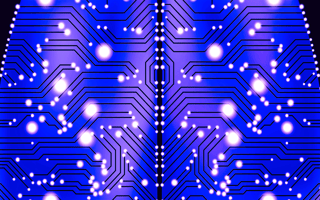Every day, companies are figuring out new ways to try to capture the complexities of human intelligence in artificial systems, and then take them even further than that. It hasn’t quite been accomplished yet, but experts say it is only a matter of time before we achieve what is widely known as artificial general intelligence, or AGI — a type of artificial intelligence that is capable of processing information and performing actions in the same ways human beings can.
Artificial General Intelligence Companies to Know
- Anthropic
- Google DeepMind
- IBM
- Microsoft
- OpenAI
Artificial general intelligence can be approached and conceptualized in many different ways, but it boils down to creating a machine that can not only do what it is created to do, but also learn and carry out tasks outside of those parameters. These systems will have the ability to implement autonomous self control.
Until then, these tech companies will continue to push the limits of artificial intelligence. Some are longtime innovators, others are fairly new on the scene. But all of them envision a world in which machines are just as intelligent and complex as humans are.
Artificial General Intelligence Companies to Know
As an AI safety and research company, Anthropic develops the AI assistant Claude, and is dedicated to building reliable, understandable and maneuverable general AI. Its research interests span a variety of fields, including human feedback, reinforcement learning, natural language processing and code generation. For instance, one of Anthropic’s papers explored how to train a general language assistant to be helpful to users, without providing harmful advice or exhibiting bad behaviors — something certain AI systems have been accustomed to do at times. The company was founded in early 2022 by a former executive at OpenAI, another innovator in artificial general intelligence.
IBM was one of the first companies to really make headlines for its innovations in artificial intelligence. In 2011, its question-answering computer system named Watson was able to win a game of Jeopardy! against two former champions using AI and natural language processing. Today, its Watson supercomputer is continuing to innovate across a variety of industries, pushing the boundaries in areas like conversational AI, predictive analytics and natural language classification.
Microsoft has made several advancements in the larger world of artificial intelligence, from machine learning-enabled cybersecurity to cognitive computing and the release of its AI tool Copilot. In 2023, the company started collaborating with research firm Hugging Face, dipping its toes in the applied artificial general intelligence space. Hugging Face is known for its leading open-source library for building machine learning models, and plans to introduce its endpoints on Microsoft’s Azure. Together, the two companies plan to make significant inroads in AGI by fostering democratized machine learning strategies and open-source collaboration.
Google DeepMind is perhaps best known for developing the Gemini AI models and the MuZero AI-based computer program. MuZero in particular uses AI to master games it has not even been taught to play through sheer brute force, re-playing games millions of times. Overall, the company says it is working to “benefit humanity” with its artificial intelligence technology. Since its merger with Google in 2014, Deepmind has made advancements in medical research specifically, particularly as it relates to eye diseases.
Darktrace’s self-learning AI helps protect companies’ data and infrastructures from cyber threats by detecting them in real time. The platform works by analyzing network data and creating probability-based calculations, detecting deviations from typical behavior to identify threats. When Dartrace detects suspicious activity, it can put a stop to it before it causes any damage. Several major companies across the financial, healthcare, media and education sectors have relied on Darktrace for protection, including Jimmy Choo, the Coca-Cola Company and Billabong.
Evolv Technology’s weapons detection scanner is designed to keep public venues safe. The portable system is able to screen hundreds of people an hour, allowing them to walk straight through at a normal pace, without stopping or having to remove anything from their pockets. Each machine is equipped with artificial intelligence and advanced computer vision, which is capable of detecting a wide range of metallic and non-metallic weapons. All the data collected from a network of sensors is processed on one software platform that is “constantly learning” according to the company, meaning it can adapt and become more intelligent as new threats are discovered. Over the years, Evolv’s technology has been implemented in schools, theaters, stadiums and other event spaces across the country, and has garnered support from several familiar names, including Bill Gates and a VC firm run by former Florida Governor Jeb Bush.
Powered by machine learning, Hyperscience automates office work. Essentially, its AI-base software extracts information from documents, turning human-readable content into machine-readable data so any given task, from data entry to client onboarding, can be done autonomously, without the need for human intervention. And Hyperscience says its technology continuously learns and evolves. So, as human involvement decreases, the software gets faster and smarter.
OpenAI is a nonprofit research company on a mission to create artificial general intelligence. Although AGI does not technically exist yet, OpenAI is one of the few companies to come close with the invention of GPT-4, a large language model, which uses deep learning to produce human-like text and understand images. While it isn’t technically intelligent, GPT-4 has been used to accomplish some pretty amazing things, including passing the bar exam and coding websites in seconds. In the long term, OpenAI says it would like to continue building AGI safely, and has received backing from tech giants including Amazon, Microsoft and Elon Musk.
Graphcore has created a completely new processor — an intelligence processing unit, or IPU, which the company says will be an important part of the next step in AI’s evolution. The IPU is built in such a way that it speeds up AI computing, allowing software architects working in machine learning to undertake all kinds of projects without having to worry about the associated compute power and bandwidth. Graphcore aims to use its technology to drive innovation in a variety of industries that rely on AI, including finance, biotech and scientific research.
Hanson Robotics is at the forefront of AI and robotics, and aims to create socially intelligent machines that have “rich personalities and social cognitive intelligence” so they can “potentially connect deeply and meaningfully with humans,” according to its website. The company is working to accomplish this by developing cognitive architecture and AI-based tools that enable robots to simulate human personalities, have meaningful interactions with humans and evolve from those interactions. Hanson is perhaps best known for its creation of humanoid robot Sophia, which took the world by storm in 2016. Sophia has since provoked discussions about AI ethics and even inspired the creation of SophiaDAO, a decentralized autonomous organization that is intended to provide guidance for future artificial general intelligence development.
MindBridge’s AI platform analyzes and detects errors in financial data, determines levels of risks for transactions and produces detailed risk assessments for financial institutions. While this may sound simple enough, its risk analytics technologies are in fact making big leaps toward the ultimate realization of AGI. The machine intelligence-driven software was among the first to complete a financial audit with a totally automated workflow, according to the company, and its risk analysis system uses a variety of machine learning strategies that combine supervised and unsupervised learning. This is useful in not only the world of finance, but also medical research, corporate management and even national defense.
Backed by two decades’ worth of neuroscience research, Numenta is a key player in our understanding of how the human brain works, and has been at the forefront of several breakthroughs in the world of artificial intelligence. At the foundation of its technology is its Thousand Brains Theory of Intelligence framework, which helps the company to develop new architectures and algorithms that will be fundamental to advancing into artificial general intelligence.
Olbrain has a neural network-based general intelligence platform that uses artificial theory of mind, a type of AI that can sense and respond to human emotions, to train robots. As far as Olbrain is concerned, the bots we are familiar with are old news — their intelligence degrades over time, their knowledge is rigid and they require a huge amount of data to run, making them inefficient. But Olbrain’s technology is working to create robots that have a generalized intelligence, where their efficiency does not decrease due to data drift, and that do need to be trained on huge amounts of data thanks to transfer learning, or the reuse of a pre-trained machine learning model on a new problem.
One Concern was created to help communities prepare for, respond to and recover from natural disasters, providing decision-makers with the data and analysis they need to make more informed decisions. The company has essentially combined AI, machine learning and human-centered hazard science to create a digital twin of the physical world, which reveals potential risks posed to our built and natural environments by extreme weather and climate change, whether that be to specific structures or external networks communities depend on to function. Advanced artificial intelligence and machine learning allow the platform to create intelligent, probabilistic models that are capable of learning, evolving and scaling from each new piece of data, according to the company.
What Can Artificial General Intelligence Companies Do?
At the moment, all of the artificial intelligence systems out there — chatbots, self-driving cars, smart assistants — are categorized as weak, or narrow, AI. They are only capable of performing the designated tasks they were programmed to do, and operate with the help of machine learning, deep learning and natural language processing. As such, this does not accomplish the overall goal of AI, which is to replicate and simulate human intelligence in machines.
But there are lots of companies out there working to make it a reality, and many industry leaders expect the emergence of AGI to be the obvious next step in AI development.
Tech billionaire Elon Musk predicted we could achieve artificial general intelligence as soon as 2029, but many experts in both academia and the private sector think we are further out than that (some say it won’t occur until after 2060). Either way, while it is important to remember all the complex tasks AGI likely won’t be able to accomplish within the decade, it is undeniable that it stands to revolutionize virtually every industry if and when it comes to fruition.
Frequently Asked Questions
What is an AGI company?
An AGI company is a company that develops AI systems or conducts AI research for the purpose of advancing technologies capable of AGI (artificial general intelligence).
Who is developing AGI?
OpenAI, Anthropic, Google DeepMind, IBM and Microsoft are a few companies working to develop AGI technologies.














